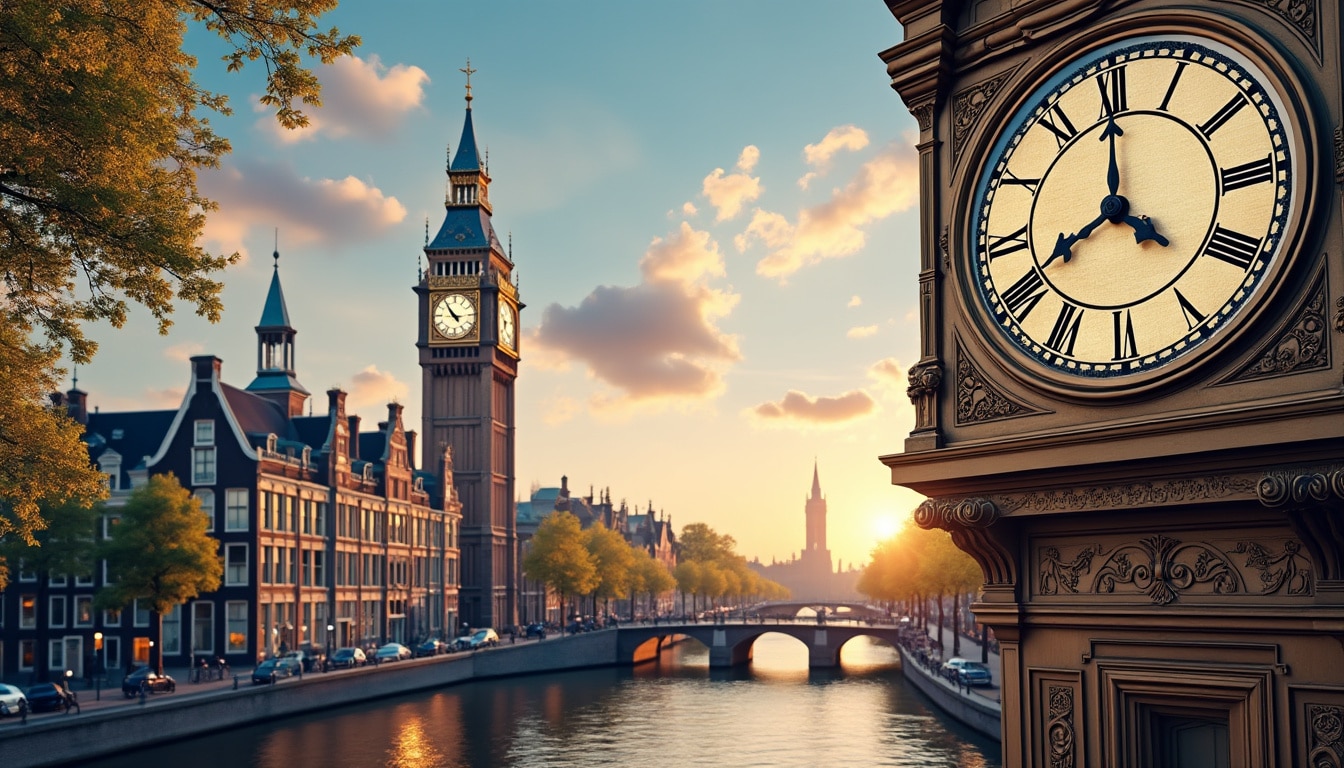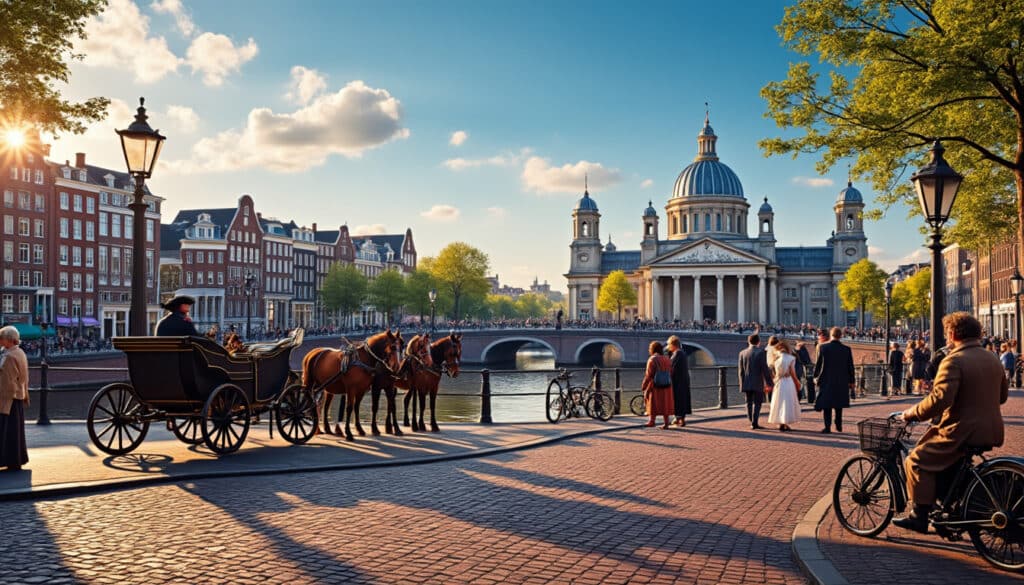In a city as vibrant and multifaceted as Amsterdam, understanding the intricacies of time and time zone is crucial for both residents and visitors alike. From the precision of Amsterdam Clocks to the seasonal shifts in Daylight Saving Time, every second counts when navigating the cultural and historical tapestry of the Dutch capital. Additionally, comparing Amsterdam Time with other global time zones using a Time Zone Converter can simplify planning international meetings or catching that crucial flight. This guide unfolds the layers of how time is woven into the fabric of daily life here, highlighting the function of Digital Clocks in public spaces and how Local Time is crucial for synchronization. Amsterdam Time operates primarily on CET (Central European Time), standardized at UTC+1, and yet it’s a city that exemplifies how time can be both a point of order and a symbol of the city’s spirited past and dynamic present. Let’s explore the complexities of time in this captivating metropolis.
The Complexity of Amsterdam’s Time Zone
Amsterdam, a city that merges modernity with a rich history, operates on Central European Time (CET), which is UTC+1. However, the intricacies of its timekeeping extend beyond this simple designation. Throughout the year, Amsterdam follows the conventional practice of Daylight Saving Time. Starting on March 30, 2025, at 02:00 AM, clocks move forward by one hour, marking the beginning of the summer time. This adjustment is reversed on October 26, 2025, at 03:00 AM when clocks are set back by an hour.
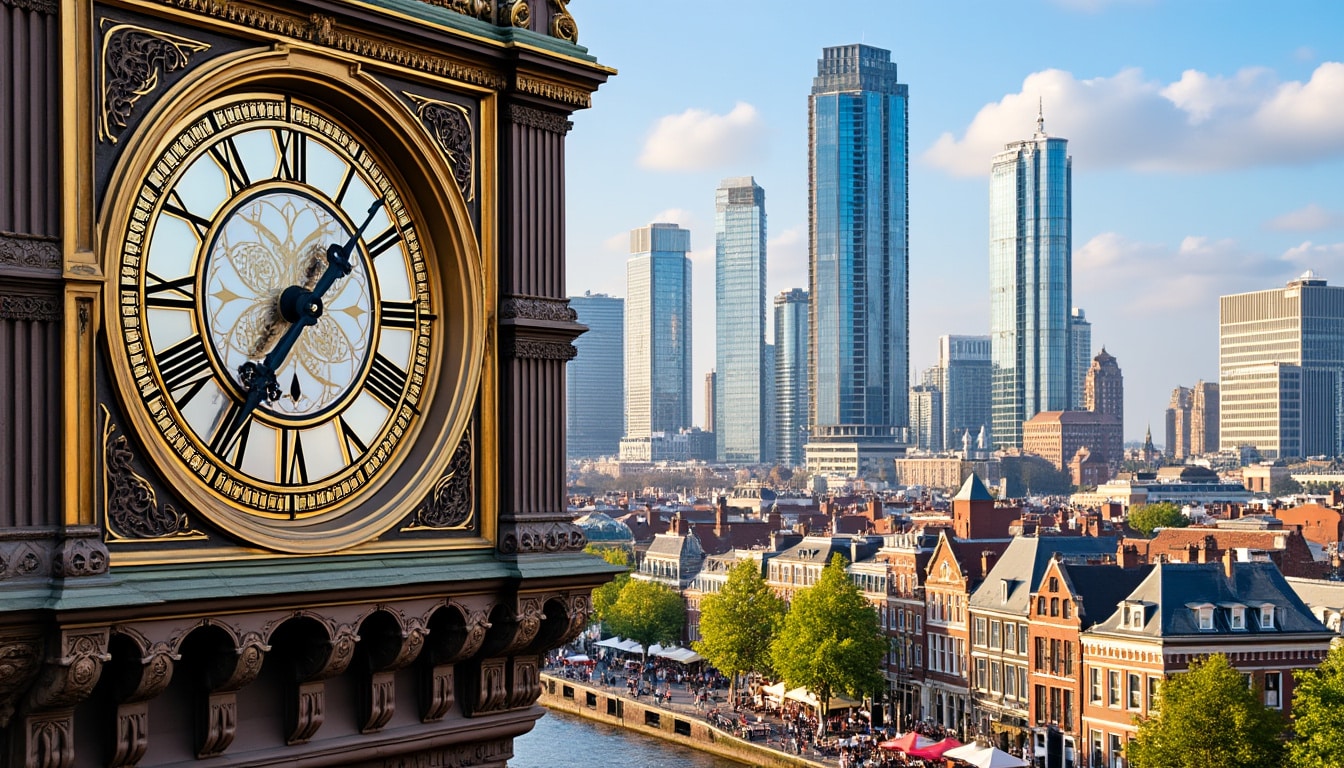
Influence of Daylight Saving Time
The transition into Daylight Saving Time is not just a matter of adjusting clocks; it deeply impacts the rhythm of life in Amsterdam. This extra hour of daylight, particularly in the evening, facilitates increased outdoor activities—a boon for cycling enthusiasts exploring the city’s picturesque routes. Furthermore, it aligns business operations with broader European markets, enhancing economic synchronization.
- 🌞 More daylight encourages tourism and outdoor activities.
- 🕒 Aligns business hours with other European cities.
- 🚲 Beneficial for cyclists and outdoor festivals.
These changes are more than a mere formal adjustment; they echo through various aspects of daily life, right down to how residents plan their weekends or enjoy the famous Amsterdam canals.
Understanding Local Time in Amsterdam
Local Time Amsterdam is more than just numbers on a clock. The city’s adherence to CET with a shift to CEST (Central European Summer Time) during the warmer months results not only in a time difference with UTC but also enhances the city’s cultural and economic life. With the current time zone offset of UTC+2 during the summer, the city becomes a hub that bridges the time gap between Western and Eastern Europe.
Amsterdam Time for Residents and Tourists
For residents, understanding the specificities of Amsterdam Time ensures they move seamlessly through a city familiar yet always new. It dictates public transport schedules, operating hours for museums, and even school timetables. For tourists, having a grasp of Local Time in Amsterdam allows for a smoother experience when exploring the city’s vibrant life—ensuring no attraction is missed due to a misunderstanding of the clock.
Additionally, Digital Clocks found across the city help synchronize daily schedules, offering real-time updates that ensure everyone is literally on the same page.
Time Differences and Global Connections
The placement of Amsterdam within the broader network of global time zones presents unique opportunities and challenges. The city’s time is not isolated; rather, it’s interconnected with a world that becomes both larger and smaller thanks to our quickening pace. One of the key tools in navigating this complexity is the Time Zone Converter, which allows for seamless communication across time differences.
Using a Time Zone Converter Effectively
A Time Zone Converter can be pivotal for international business and travel planning. This tool helps translate Amsterdam Time into any global time zone, alleviating the confusion that often accompanies international calls or meetings. Whether you’re setting up a cross-continental business call or trying to keep in touch with family in another part of the world, being aware of the time differences ensures your schedules align perfectly.
- 🌐 Facilitates planning international business meetings.
- 📞 Essential for scheduling calls with family and friends abroad.
- 🎒 Helps tourists plan their itinerary in correlation with flights.
These converters, often embedded in smartphones and available online, have become indispensable for anyone frequently navigating through different time zones.
Historical Impact of Timekeeping in Amsterdam
Timekeeping has always played a significant role in Amsterdam’s history, dating back to its status as a major port city in the Dutch Golden Age. The drive for precision in timekeeping arose from the need to coordinate international trade and shipping schedules. This historical necessity has left a mark on modern-day Amsterdam, where accuracy in timekeeping remains crucial. Explore more about Amsterdam’s rich history.
Evolution of Timekeeping Methods
Initially, time was kept through sundials and water clocks, gradually evolving to mechanical clocks that governed the city’s activities. This evolution reflects a shift not just technologically but culturally, with time becoming a more precise, yet abstract concept. The demand for precision in time measurement has only increased in today’s world, where every second counts for Amsterdam’s residents and visitors.
| Year 📅 | Event 🏛️ | Impact ⌛ |
|---|---|---|
| 1600s | Dutch Golden Age | Rise in precision timekeeping due to trade |
| 1800s | Industrial Revolution | Increase in demand for accurate timepieces |
| 2025 | Modern Day | Integration of digital timekeeping in daily life |
This historical evolution of timekeeping continues to shape how Amsterdam operates, linking the past with present innovations.
The Role of Digital Clocks in Amsterdam
In a city bustling with digital innovations and historical landmarks, Digital Clocks play an unassuming yet vital role. While they seem simple, they reflect Amsterdam’s ability to embrace modern solutions for everyday conveniences. These clocks keep everyone attuned to the Local Time Dive into daily life in Amsterdam, providing automatic adjustments for Daylight Saving Time, thereby eliminating any second-guessing.
Advantages of Digital Time Displays
Across Amsterdam, Digital Clocks offer several advantages over their analog counterparts. They provide precise time readings and automatically adjust for Daylight Saving Time. For tourists, these digital displays reduce the stress of manual clock adjustments. Furthermore, businesses and public services rely on these accurate time displays to maintain consistency and punctual operations.
- 🖥️ Clear and easy to read for everyone.
- ✅ Automatically adjusts for time changes.
- 🕰️ Ensures punctuality in business and public services.
This reliance on digital timekeeping underscores the city’s vision of blending technological efficiency with historical charm, further enhancing the lifestyle of its residents.
FAQ
- Q1: When does Daylight Saving Time start in Amsterdam?
A1: In 2025, Daylight Saving Time starts on March 30 at 02:00 AM when clocks are set forward by one hour. - Q2: What is the current time zone of Amsterdam during summer?
A2: During summer, Amsterdam’s time zone changes to CEST (Central European Summer Time), which is UTC+2. - Q3: How can I convert Amsterdam Time to my local time?
A3: Use a Time Zone Converter tool available online or on your smartphone to translate Amsterdam Time to your local time zone.
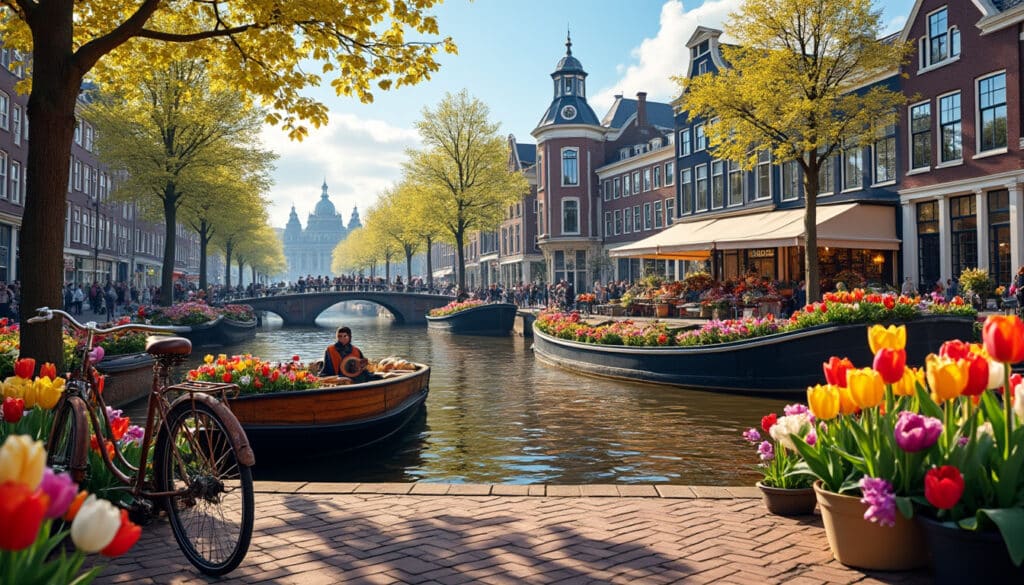
Fun Facts & Curiosities About Amsterdam
Amsterdam, the vibrant capital of the Netherlands, is a city that never ceases to amaze. Known for its serene canals, world-renowned art museums, and rich history, it’s no wonder that this ‘Venice of the North’ attracts over 20 million visitors…
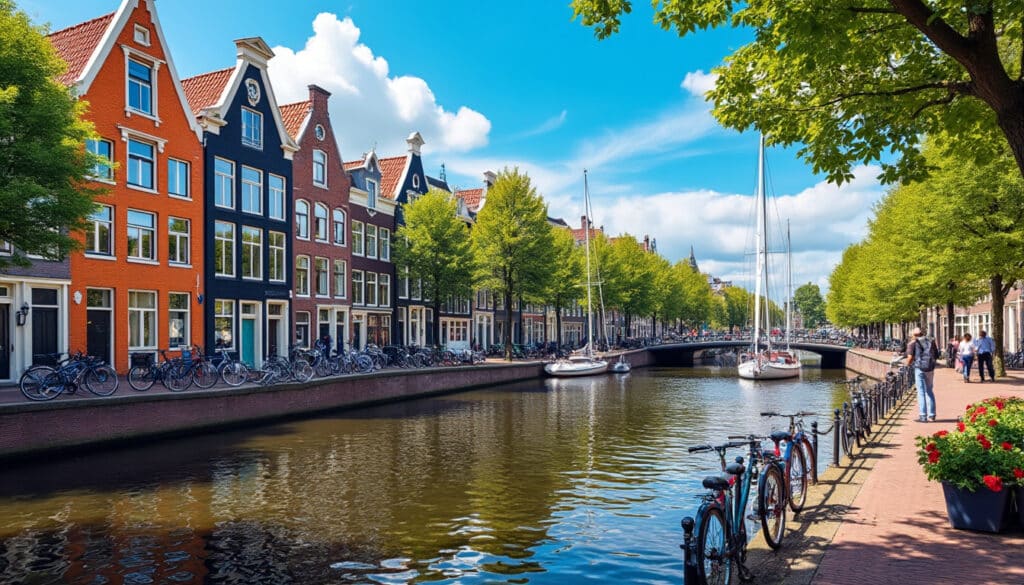
Architecture and urban features of Amsterdam
Amsterdam, a city renowned for its intricate network of canals and historical charm, is also a hub of architectural brilliance. From its iconic canal houses to modern marvels, the city’s architectural landscape offers a delightful exploration for design enthusiasts. As…
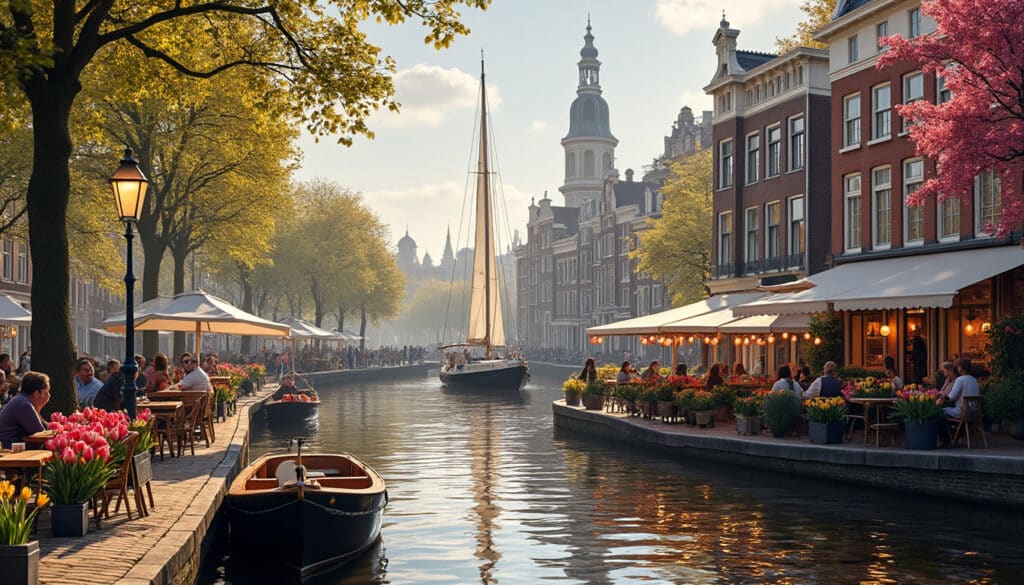
Amsterdam, the capital city of the Netherlands, offers an intriguing blend of historical charm and modern-day convenience. Known for its stunning architecture, cultural diversity, and vibrant neighborhoods, this city provides a unique experience for both residents and tourists. From biking…
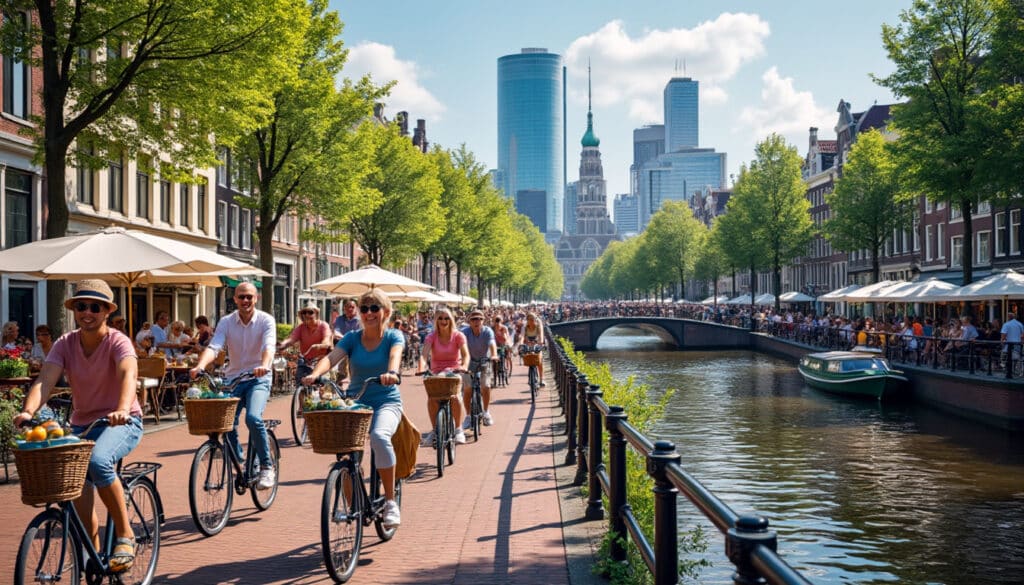
Demographics and geography of Amsterdam
Amsterdam, a city renowned for its intricate canal systems, historic landmarks, and vibrant culture, is a place that offers a captivating blend of the old and the new. Known formally as the capital of the Netherlands, it stands as a…
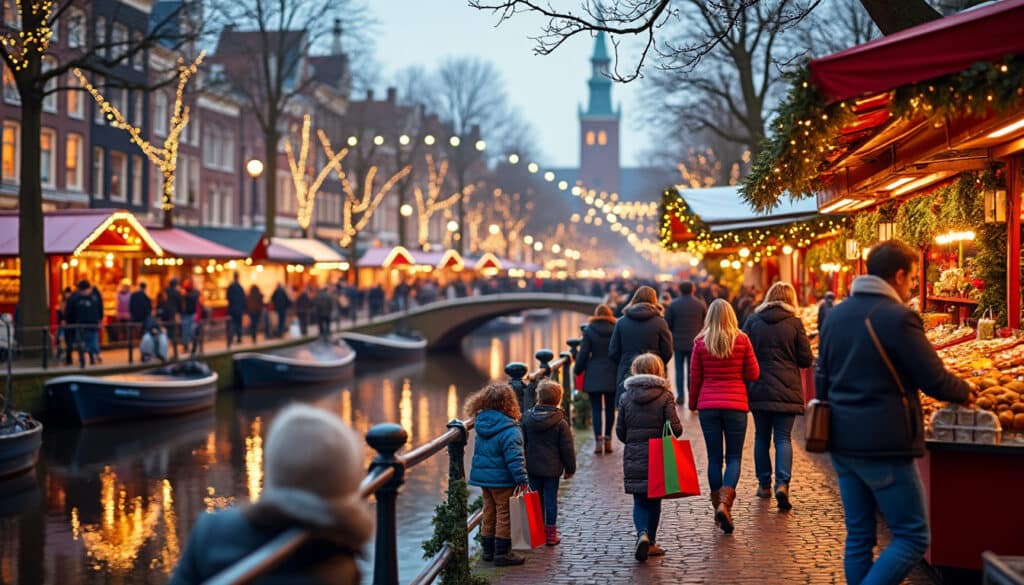
Holidays and celebrations in Amsterdam
Amsterdam, a city with a rich tapestry of history and modern culture, transforms itself through its myriad of festivals and celebrations throughout the year. As each season unfolds, the city reveals a unique character, inviting locals and visitors alike to…
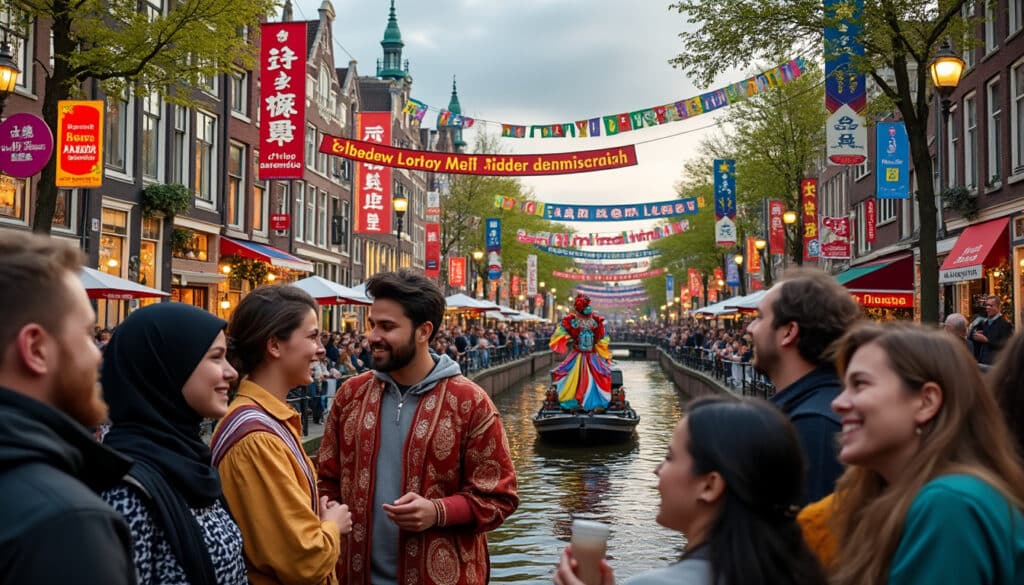
Language and spelling of Amsterdam
Amsterdam, with its historic canals, vibrant culture, and diverse demographics, thrives in its unique linguistic landscape. 🇳🇱 The official language is Dutch, a symbol of the city’s deep roots and rich heritage. Yet, this dynamic metropolis stands out for its…
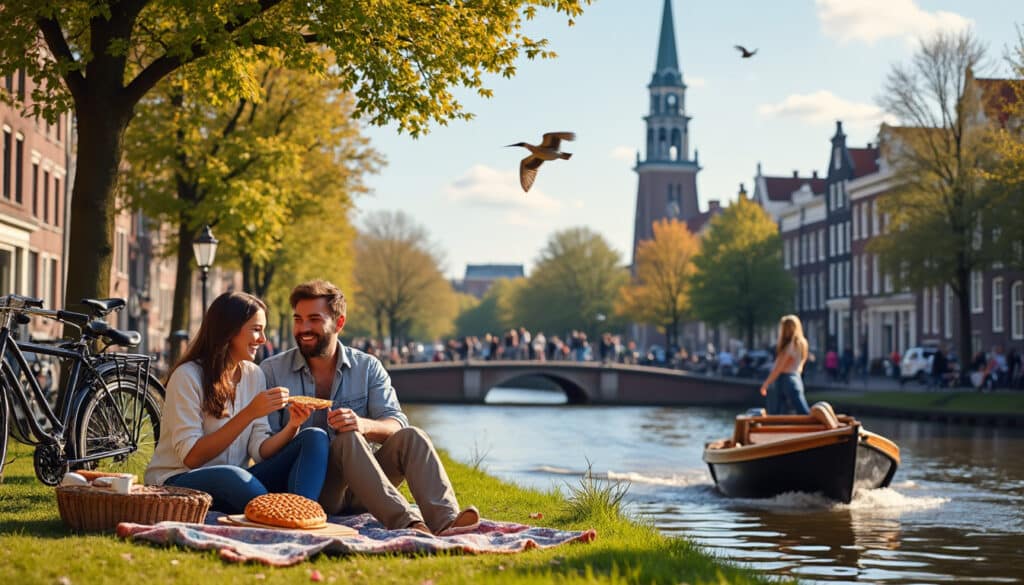
Local tips for tourists in Amsterdam
Amsterdam is a city brimming with historical charm, vibrant culture, and unique experiences that attract millions of visitors each year. While many tourists flock to the typical hotspots, there’s a wealth of hidden gems and local secrets waiting to be…
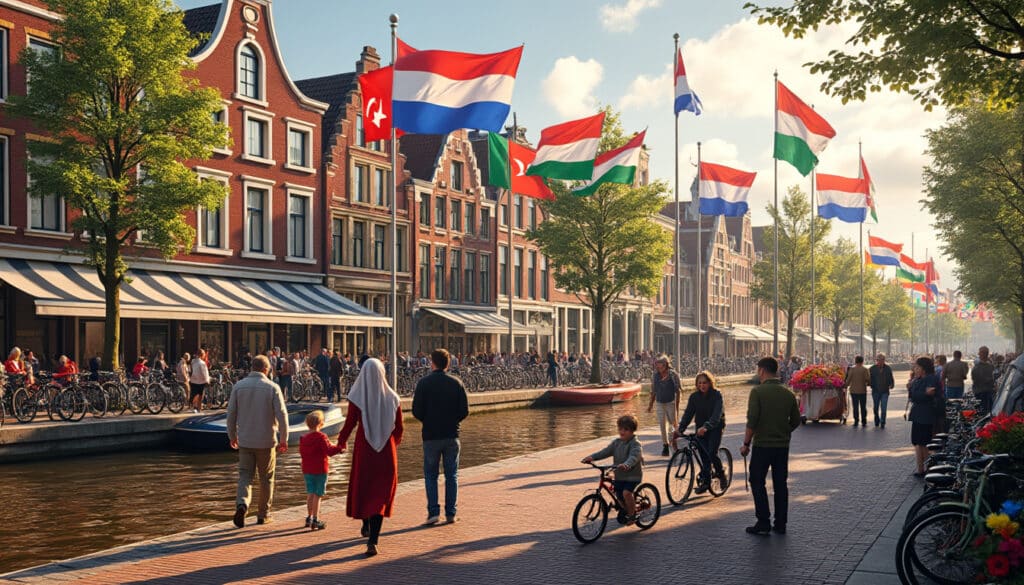
Names, flags, and identity of Amsterdam
The vibrant city of Amsterdam, with its rich tapestry of history and culture, showcases its identity in manifold ways. Beyond its iconic canals and architecture, the names and symbols, such as flags and coats of arms, deeply root its unique…
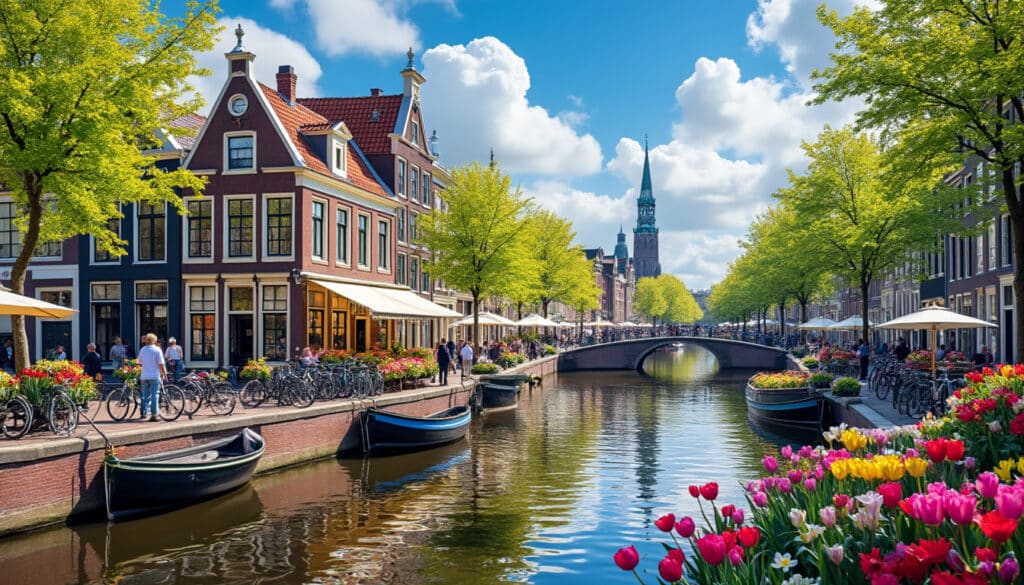
Reputation and identity of Amsterdam
A city of canals, history, culture, and innovation, Amsterdam has always been a significant player on the global stage. Known for its liberal ethos and iconic landmarks like the Van Gogh Museum and the Rijksmuseum, this Dutch capital has cultivated…
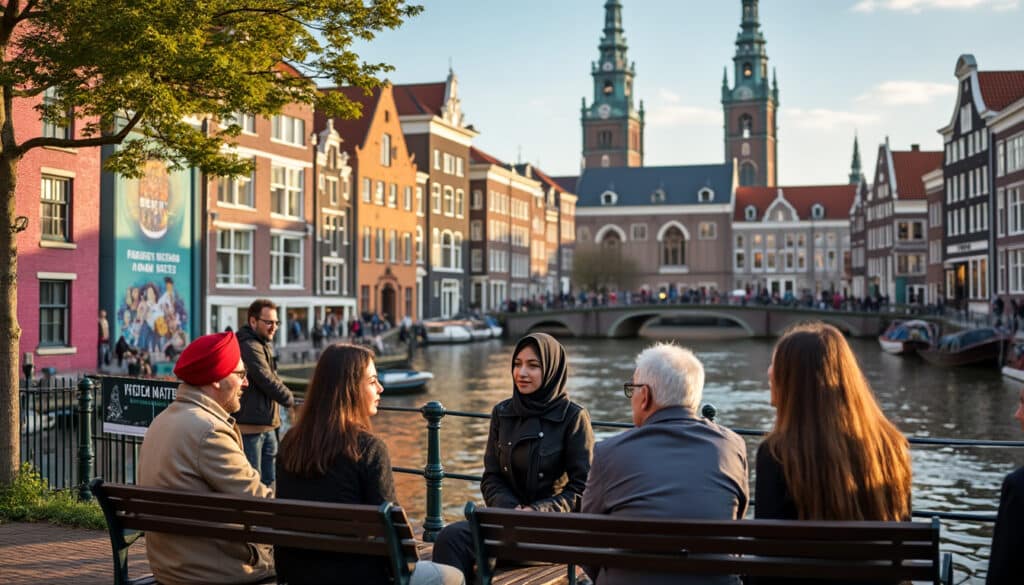
Unusual facts and social issues in Amsterdam
Amsterdam, often celebrated for its charming canals and vibrant culture, offers a blend of historical depth and modern vibrancy. Yet, beneath its picturesque exterior lies a tapestry of unusual facts and pressing social issues that often go unnoticed. From its…

What does Amsterdam look, smell, feel like?
Embark on an immersive journey through the sensory tapestry that is Amsterdam, a city where sight, smell, and touch blend to create an experience both unique and familiar. As bicycles gracefully weave through the cobblestone streets, the unforgiving wind dances…

